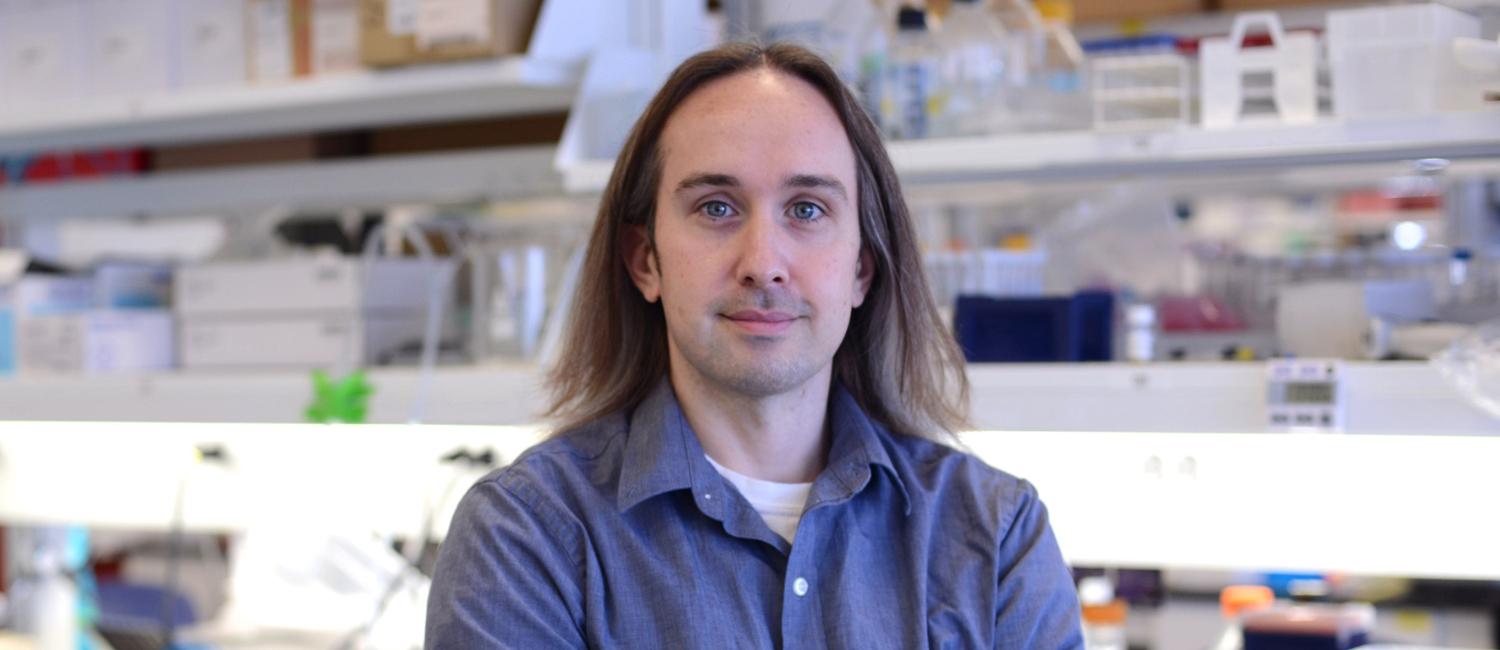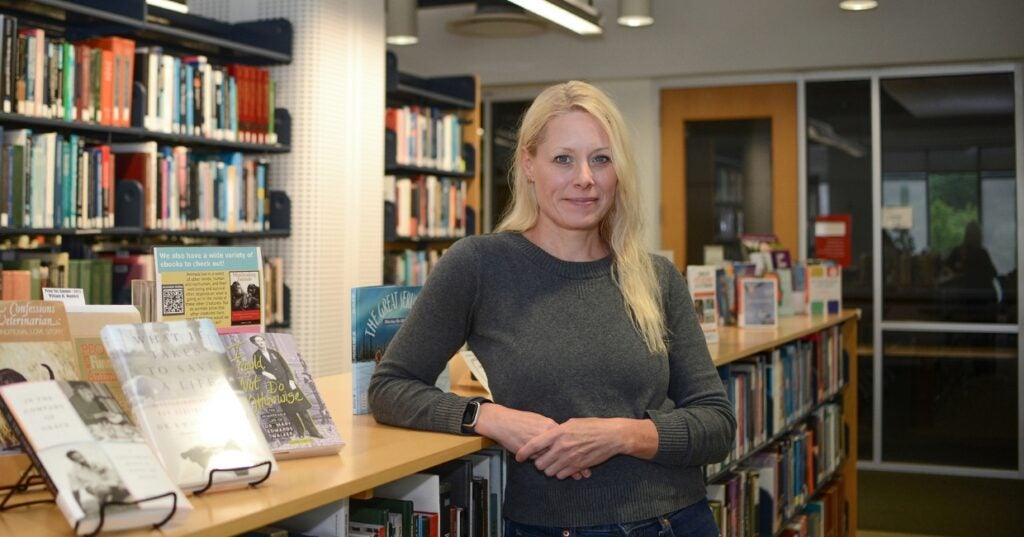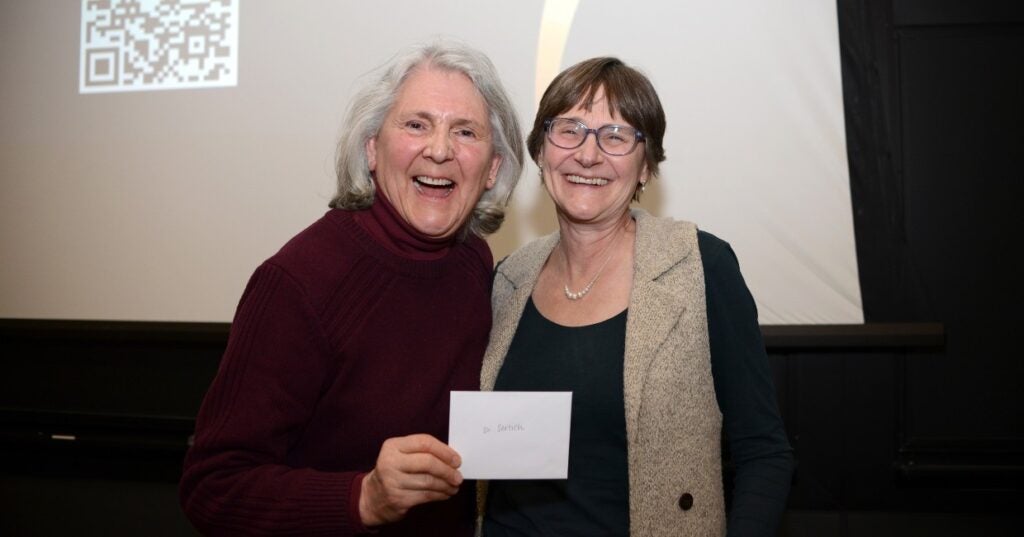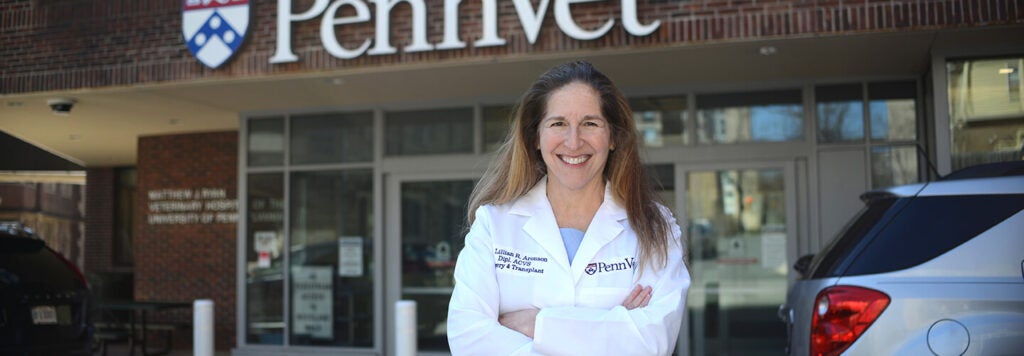University of Pennsylvania School of Veterinary Medicine Biomedical Sciences Researcher Named 2024 Packard Fellow

Andrew Modzelewski, PhD, assistant professor in the Department of Biomedical Sciences at the University of Pennsylvania’s School of Veterinary Medicine (Penn Vet), has been named to the 2024 class of Packard Fellows for Science and Engineering.
Since 1988, the Packard Fellowships for Science and Engineering — offered through the David and Lucile Packard Foundation — have supported cutting-edge scientific work by offering unrestricted funds to recipients whose efforts push the boundaries of innovation. Modzelewski is one of 20 early-career scientists selected as part of the 2024 class of Fellows. He will receive $875,000 in individual grant funding, distributed over five years, for his research investigating the role of ancient viruses and mobile elements, known as retrotransposons, in development and disease.
“This extraordinary class of Fellows joins the community of Packard Fellows who are pushing the boundaries of innovation and discovery to contribute to science and engineering in ways that make a real difference to our world,” said Dr. Richard Alley, chair of the Packard Fellowships for Science and Engineering Advisory Panel, and 1991 Packard Fellow. “We look forward to welcoming them to the Packard Fellows community and supporting them as they collaborate, learn, and create the future together.”
Nearly 50% of the human genome consists of retrotransposons. While silenced in adult cells, retrotransposons are expressed in embryos at key developmental timepoints. Without them, early embryos fail to develop, suggesting an unknown essential function buried within their poorly understood ability to alter healthy DNA. Modzelewski’s research focuses on the unique behavior of retrotransposons in preimplantation development, reproduction, and disease progression, specifically how their intentional reactivation is crucial for healthy embryo development.
By utilizing advanced genome editing techniques through microinjection and electroporation – along with live cell imaging and long read sequencing – Modzelewski’s research group, the “ModzLab,” is investigating the mechanisms behind these processes. The outcome of the initiative is expected to contribute new insights to the fields of fertility, childhood disease, and regenerative medicine.
“I am incredibly grateful to the David and Lucile Packard Foundation for selecting me as a 2024 Packard Fellow,” said Modzelewski. “This grant will empower me and my team to delve deeper into the complexities of early embryo development and the role retrotransposons play. The freedom and flexibility provided by this fellowship will support new avenues of research that could lead to significant advancements in our understanding of genetics and health. I look forward to joining the distinguished community of Packard Fellows and contributing to the collective pursuit of scientific discovery.”
Modzelewski’s exploration into the full functionality of retrotransposons also holds promise in revealing connections to aging and cancer, offering a broader perspective on human health.
“I am thrilled to see Dr. Modzelewski recognized for his groundbreaking work showing how mammals have coevolved with these ancient viral remnants to a point where they have become essential to mammalian life,” said Christopher Lengner, PhD, chair of the Department of Biomedical Sciences and Harriet Ellison Woodward Professor of Biomedical Science. “His innovative research on retrotransposons in early embryonic development not only advances scientific knowledge, but also exemplifies the spirit of discovery that defines Penn Vet. Dr. Modzelewski is an inspiring figure for early-career researchers, embodying the dedication and vision necessary to drive meaningful progress.”
Related News

The University of Pennsylvania School of Veterinary Medicine Names Amy Durham, Associate Dean for Education
Andrew M. Hoffman, DVM, DVSc, DACVIM, Gilbert S. Kahn Dean of the University of Pennsylvania’s (Penn) School of Veterinary Medicine (Penn Vet) has announced the appointment of Amy Durham, MS,…

SAVMA Student Teaching Awards 2025
On Friday, April 11, the Penn Vet community gathered to honor students, faculty, and hospital staff during the annual SAVMA Student Teaching Awards. Recipients are selected by the student body…

Penn Vet’s Lillian R. Aronson, VMD, DACVS, Earns Prestigious Lindback Award for Distinguished Teaching
Lillian R. Aronson of the University of Pennsylvania’s School of Veterinary Medicine (Penn Vet) has earned the prestigious Christian R. and Mary F. Lindback Award for Distinguished Teaching. Dr. Aronson…
About Penn Vet
Ranked among the top ten veterinary schools worldwide, the University of Pennsylvania School of Veterinary Medicine (Penn Vet) is a global leader in veterinary education, research, and clinical care. Founded in 1884, Penn Vet is the first veterinary school developed in association with a medical school. The school is a proud member of the One Health initiative, linking human, animal, and environmental health.
Penn Vet serves a diverse population of animals at its two campuses, which include extensive diagnostic and research laboratories. Ryan Hospital in Philadelphia provides care for dogs, cats, and other domestic/companion animals, handling more than 34,600 patient visits a year. New Bolton Center, Penn Vet’s large-animal hospital on nearly 700 acres in rural Kennett Square, PA, cares for horses and livestock/farm animals. The hospital handles more than 6,200 patient visits a year, while our Field Services have gone out on more than 5,500 farm service calls, treating some 18,700 patients at local farms. In addition, New Bolton Center’s campus includes a swine center, working dairy, and poultry unit that provide valuable research for the agriculture industry.

